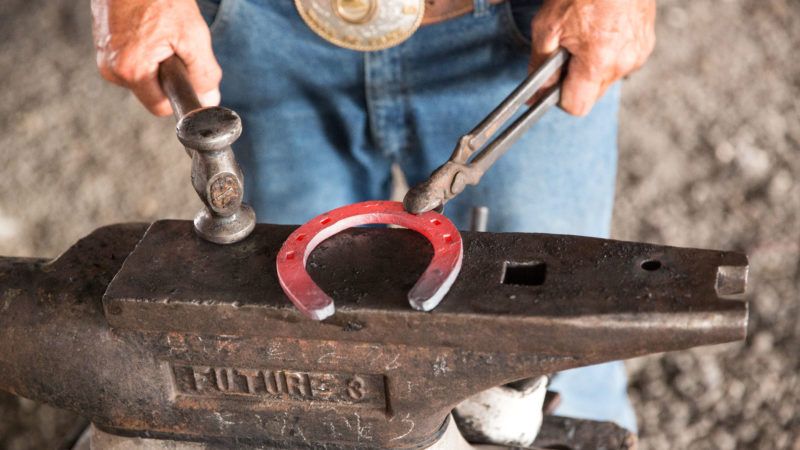Lacking a State-Issued Degree Shouldn't Bar You From Pursuing Vocational Education
The Institute for Justice fights for the right to receive paid training as a farrier without a high school diploma or equivalent.

How could the state help make life even harder for those struggling up the economic ladder? How about making it illegal to professionally train them in a vocation unless they've already successfully gone through the effort of getting a state-approved high-school diploma or equivalent?
If a decision out of the 9th Circuit Court of Appeals this week holds up after the U.S. District Court for the Eastern District of California reconsiders the case, then this particularly punitive and absurd barrier to advancement might be killed.
The fight at the heart of Pacific Coast Horseshoeing School v. Grafilo arose from the world of horseshoeing. This probably isn't the industry of the future, but it's a profession that any free Americans should be able to pay to be trained in.
The suit, in which the libertarian Institute for Justice (I.J.) helped represent the Pacific Coast Horseshoeing School (PCHS) and would-be student Esteban Narez (a ranch hand who is used to working with horses), was initially filed in October 2017.
The lawsuit challenges the California Private Postsecondary Education Act of 2009, which in the suit's words "makes it illegal for a horseshoeing school to teach a student without a high-school diploma how to become a farrier." This, the attorneys argue, "violates the freedom of speech of both those who want to teach horseshoeing and those who want to learn it."
In April 2018, the state convinced U.S. District Court Judge John A. Mendez of the Eastern District of California to toss the suit. Mendez concluded that since the act prohibits not just teaching Narez but charging him professionally for the teaching, the law wasn't really about speech but was just a commercial regulation. Thus, he concluded, the law is "rationally related to the legitimate government interest of protecting students and the public from harm and deception."
The state argues that this rule protects people like Narez by forcing them to demonstrate an "ability to benefit" from the training they pay for. What the state sees as a consumer protection, Narez sees as a waste of his time. As an earlier filing from Narez's side of the case put it, the law tells student that they must
prove to the government's satisfaction that they are capable of understanding their teachers' instruction. When it comes to speech, this sort of paternalism has no place in the American legal landscape.
Somewhat confusingly, you don't need a license or any particular educational background to practice horseshoeing. But you are legally required to have that high school diploma or equivalent if you want someone to train you professionally in the art.
I.J., the horseshoe trainer, and the would-be horseshoe student appealed that first dismissal of their case. This week, as I.J. announced in a press release, "a federal appeals court ruled that the First Amendment protects teachers' right to teach as well as students' right to learn. The three-judge panel's unanimous decision ruled that California likely violated the constitutional rights of Bob Smith, owner of Pacific Coast Horseshoeing School, by prohibiting him from teaching students how to shoe horses regardless of their past educational achievements." Now it's on to the lower court rehearing, where the state will have to make the case that its rules "can survive First Amendment scrutiny."


Show Comments (27)